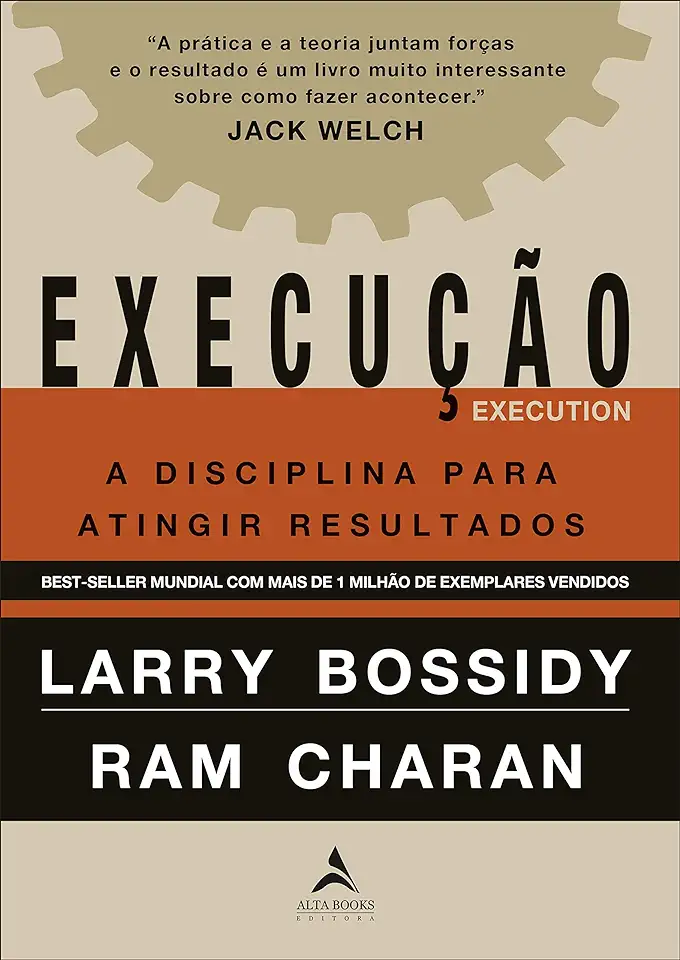
Execution: The Discipline of Getting Things Done
Execution: The Discipline of Getting Things Done
In the business world, execution is everything. It's the difference between success and failure. But what exactly is execution, and how can you improve it?
In his book, "Execution: The Discipline of Getting Things Done," Larry Bossidy and Ram Charan argue that execution is a discipline that can be learned and mastered. They identify four key elements of execution:
- People: The right people in the right roles, with the right skills and experience.
- Strategy: A clear and concise strategy that everyone in the organization understands and is committed to.
- Processes: Efficient and effective processes that support the strategy.
- Culture: A culture that values execution and rewards results.
Bossidy and Charan provide a wealth of practical advice on how to improve execution in your organization. They discuss how to hire the right people, develop a winning strategy, create efficient processes, and build a culture of execution.
Why Execution is Important
Execution is important for several reasons. First, it helps you achieve your goals. If you don't execute your plans, you won't achieve anything. Second, execution helps you build momentum. When you start to see results, you're more likely to stay motivated and continue to execute your plans. Third, execution helps you create a culture of success. When people see that you're serious about execution, they're more likely to buy into your vision and work hard to help you achieve your goals.
The Four Elements of Execution
Bossidy and Charan identify four key elements of execution:
- People: The right people in the right roles, with the right skills and experience.
- Strategy: A clear and concise strategy that everyone in the organization understands and is committed to.
- Processes: Efficient and effective processes that support the strategy.
- Culture: A culture that values execution and rewards results.
Let's take a closer look at each of these elements.
People
The most important element of execution is people. You need to have the right people in the right roles, with the right skills and experience. This means hiring the best people you can find, and then developing them so that they can reach their full potential.
When hiring people, look for those who are:
- Smart: They have the intelligence and skills to do the job.
- Hard-working: They're willing to put in the effort to get the job done.
- Team players: They can work well with others and contribute to the team's success.
- Results-oriented: They're focused on achieving results and getting things done.
Once you've hired the right people, you need to develop them so that they can reach their full potential. This means providing them with training and development opportunities, and giving them the resources they need to be successful.
Strategy
A clear and concise strategy is essential for execution. Everyone in the organization needs to understand the strategy and be committed to it. The strategy should be:
- Clear: Everyone should be able to understand the strategy and what it means for them.
- Concise: The strategy should be short and to the point.
- Focused: The strategy should focus on a few key priorities.
- Achievable: The strategy should be realistic and achievable.
Once you've developed a strategy, you need to communicate it to everyone in the organization. Make sure that everyone understands the strategy and is committed to it.
Processes
Efficient and effective processes are essential for execution. Your processes should support your strategy and help you achieve your goals. Your processes should be:
- Efficient: They should get the job done with the least amount of time and effort.
- Effective: They should produce the desired results.
- Standardized: They should be consistent across the organization.
- Documented: They should be written down so that everyone knows how to follow them.
When you have efficient and effective processes in place, you can be confident that your organization is running smoothly and that you're on track to achieve your goals.
Culture
A culture that values execution and rewards results is essential for success. Your culture should be one where:
- Execution is a priority: Everyone in the organization is focused on getting things done.
- Results are rewarded: People are rewarded for achieving results, not just for their efforts.
- Mistakes are tolerated: People are allowed to make mistakes as long as they learn from them.
- Continuous improvement is encouraged: People are encouraged to constantly improve their skills and knowledge.
When you have a culture that values execution and rewards results, you create an environment where people are motivated to succeed.
How to Improve Execution
If you want to improve execution in your organization, there are a few things you can do:
- Start with the people: Make sure you have the right people in the right roles, with the right skills and experience.
- Develop a clear and concise strategy: Everyone in the organization needs to understand the strategy and be committed to it.
- Create efficient and effective processes: Your processes should support your strategy and help you achieve your goals.
- Build a culture that values execution and rewards results: Create an environment where people are motivated to succeed.
By following these tips, you can improve execution in your organization and achieve your goals.
Conclusion
Execution is the key to success in business. By following the principles outlined in this book, you can improve execution in your organization and achieve your goals.